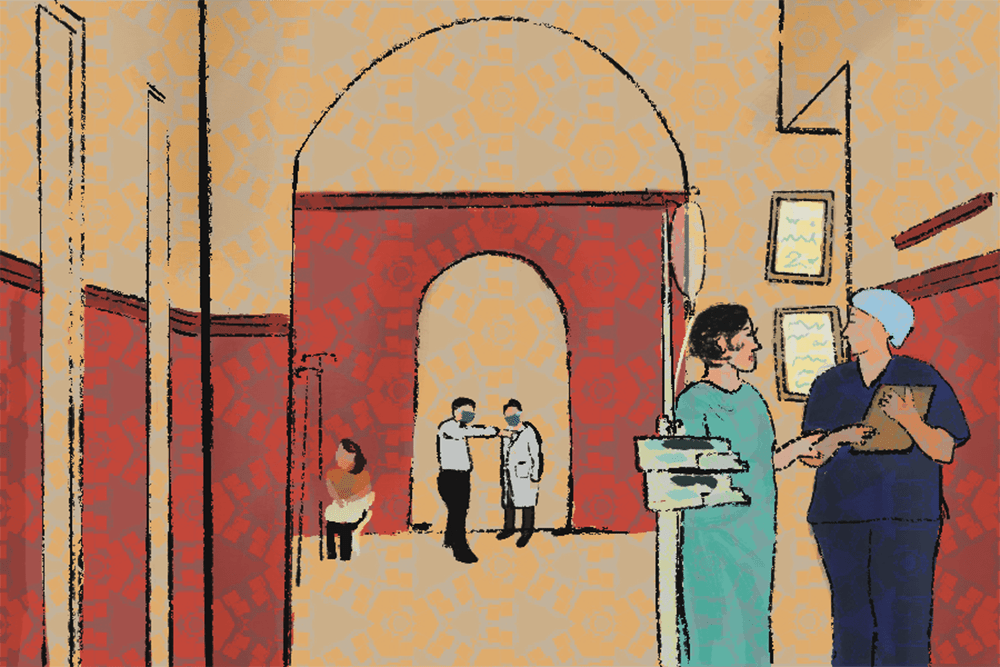Philippines / CASE STUDY
Government-Led Infrastructure Has Embedded Diaspora Giving in National Development
Government-led initiatives have catalyzed collective diaspora philanthropy as a tool for national development in the Philippines

While remittances sent to personal connections have long been a pillar of the economy of the Philippines—which has a GDP of USD 461 billion—the government has also engaged the Filipino diaspora in philanthropic giving for the broader public good through formal programs and policy frameworks. These initiatives aim not just to support families, but also to direct diaspora capital toward education, healthcare, disaster response, and development. Such efforts are critical to sustaining progress toward the SDGs. The country has achieved goal 12 of responsible consumption and production, but performance is stagnating or worsening on good health and well-being, climate action and peace, justice, and strong institutions.
The strategy to tap into the Filipino diaspora for development gains is a promising one. While the large global diaspora includes many migrant workers, it also constitutes higher-net worth individuals across North America, Europe, Australia, and New Zealand. Ninety percent of philanthropic contributions to the Philippines came from hometown associations and other diaspora organizations in these regions. A growing portion of the Filipino diaspora has built substantial wealth. The over 4 million members of the Filipino diaspora in the United States, for example, are more likely to have a college degree, earn higher incomes, and have health insurance than both U.S.-born individuals and other immigrant groups on average.
Unlike countries where diaspora giving is mostly informal, the Philippines has institutionalized diaspora engagement within its national development agenda. Over the last several decades, the government has launched multiple programs to enable coordinated philanthropic giving by individuals, diaspora associations, and institutions. This approach reflects a strategic shift: leveraging an increasingly wealthy diaspora not only for private remittances, but also to generate collective impact for public good.

An architecture of government programs and partnerships directs diaspora giving to national priorities
Over time, the government of the Philippines has built the structures necessary to facilitate and channel giving by diaspora individuals and institutions. One of the earliest initiatives is Linking Filipinos Abroad with Local Initiatives (LINKAPIL), established in 1989 by the Commission on Filipinos Overseas (CFO). LINKAPIL allows for the systematic management of philanthropic inflows from the diaspora, directing them toward local development initiatives. LINKAPIL-supported development efforts include projects focused on livelihood development, education, health care, disaster relief, and small-scale infrastructure. From 2010 to 2020, LINKAPIL disbursed PHP 3.4 billion and reached more than 1 million beneficiaries.
BaLinkBayan, a government-run one-stop digital portal that connects donors to vetted organizations and high-need communities, is a more recent initiative by the CFO. Beyond making these connections, the platform includes information and tools for members of the Filipino diaspora to invest in the economy of the Philippines. It also provides pathways for the diaspora to develop or strengthen its connection to the Philippines, both practically and emotionally. For example, it grants Filipinos abroad access to government services online and collates information about the Philippines for overseas youth who want to learn more about their country of origin. This work helps foster diaspora philanthropy, as strong ties to countries of origin can catalyze giving.
Diaspora philanthropy is further institutionalized through strong investment models and giving vehicles with tax advantages and transparency mechanisms. For example, the Overseas Filipinos Remittances for Development (OFs-ReD), is a public-private initiative involving CFO, UNDP, and others, that links diaspora remittances and philanthropy to job creation and social enterprise funding. The Philippine Philanthropic Fund (PPF), launched by the Aspen Institute’s Diaspora Investment Alliance and CFO, provides a donor-advised fund to allow U.S.-based Filipinos to make tax-deductible donations to local nonprofits.
The range of government programs embedding the diaspora into national development plans has served to define the link between the Filipino diaspora and the country’s development, formalizing its role in helping those back home.

Government efforts complement community-led and foundation-based diaspora philanthropy
While the Philippine government has provided structure and incentives for diaspora giving, independent diaspora organizations and high-net-worth individuals have also advanced development in the Philippines. For example, the Bayanihan Foundation Worldwide, founded in 2009 to formalize community giving among Filipino Americans, is currently supporting four long-term community development projects in the Philippines. HNWIs in the Filipino diaspora have spearheaded coordinated giving to aid development in the Philippines. The Ayala Foundation, founded and primarily funded by Manila natives Joseph and Mercedes McMicking, supports science and research in the Philippines alongside education, community development, disaster resilience, and leadership programs. In 2023, its programs reached 4.8 million beneficiaries, it has trained over 12,000 teachers since 1998, and to date, it has raised USD 3.75 million for more than 1,600 public high schools.
The Philippine government’s efforts to institutionalize diaspora engagement—complemented by the work of community organizations and philanthropic leaders—have created mechanisms to channel diaspora generosity into national development. By lowering barriers, fostering emotional connection, and aligning giving with strategic priorities, the Philippines offers a compelling model for how diaspora philanthropy can drive sustained progress.
